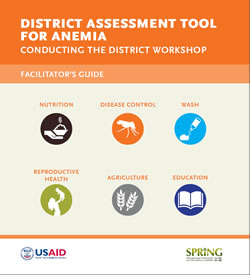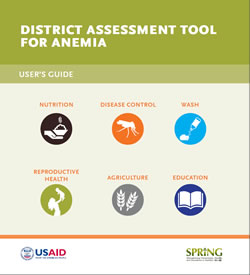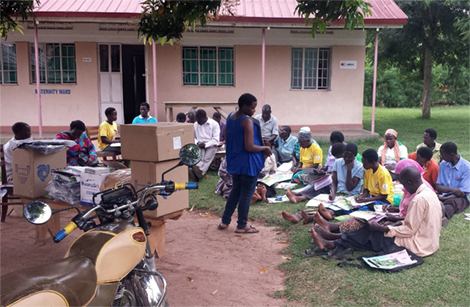Uganda
Challenges with Identifying Rapid Methods that are Accurate and Cost Effective for Food Fortification Monitoring and Inspections
Introduction
Levels of micronutrients added to fortified foods in Uganda must meet the standards set by the Uganda National Bureau of Standards (UNBS). These levels are set to significantly increase the population’s micronutrient intake of vitamin A, iron, and iodine to help reduce micronutrient deficiencies. These deficiencies can only be managed if the fortified products contain adequate nutrients.
Piloting Through Partnership: Micronutrient Powders In Uganda
Background
Despite improvements in anemia rates in recent years in Uganda, the prevalence of anemia among children remains high, at 49 percent. To continue reducing anemia, Uganda needs to focus its efforts on children 6–23 months of age. Micronutrient powders (MNP) are one of the few interventions that address multiple micronutrient deficiencies simultaneously and contribute to anemia reduction in this age group.
Using SBCC to Lower Barriers to Appropriate Use of Micronutrient Powders in Uganda
Background
In Uganda, the MOH is piloting a program to promote MNP fortification of complementary foods for infants and children 6-23 months, with an eye toward national expansion. The MOH and partners are positioning MNP as part of an overall strategy to improve the complementary feeding aspect of IYCF messaging and counseling, as well as WASH practices.
Looking at Micronutrient Powder Distribution Qualitatively
Background
Although micronutrient powders (MNP) are a promising intervention for reducing anemia in young children, research on MNP has focused more on clinical outcomes than operational issues. In Uganda, the Ministry of Health (MOH) is considering national rollout of MNP but needed context-specific implementation evidence for this intervention. To address this gap, the Strengthening Partnerships, Results, and Innovations in Nutrition Globally (SPRING) project is piloting MNP distribution in Namutumba District, Uganda.
Guidelines for Integrating Nutrition into Agriculture Enterprise Mixes in Uganda
Ministry of Agriculture, Animal Industry and Fisheries of Uganda, August 2016
Pushing the Frontiers in Ag-Nutrition Methods and Metrics: IMMANA Round 1 Fellows Share Their Research
Leverhulme Centre for Integrative Research on Research and Health, October 2016
District Assessment Tool for Anemia (DATA)


The District Assessment Tool for Anemia (DATA) is a generic toolkit that helps districts assess their curren
SPRING and Uganda’s National Anemia Working Group Pilot the District Assessment Tool for Anemia in Namutumba and Arua
In August 2016, SPRING’s Nancy Adero (Technical Advisor of Anemia and Micronutrients) and Danya Sarkar (Nutrition Specialist) conducted district-level workshops to support Uganda’s National Anemia Working Group (NAWG) in piloting the District Assessment Tool for Anemia (DATA) in Namutumba and Arua districts.
In Pictures: SPRING/Uganda Celebrates World Breastfeeding Week 2016
SPRING/Uganda celebrated WBW by working with the Ministry of Health to organize several activities at the national level to spread key messages on breastfeeding and nutrition in general.
Pagination
- Previous page
- Page 8
- Next page
